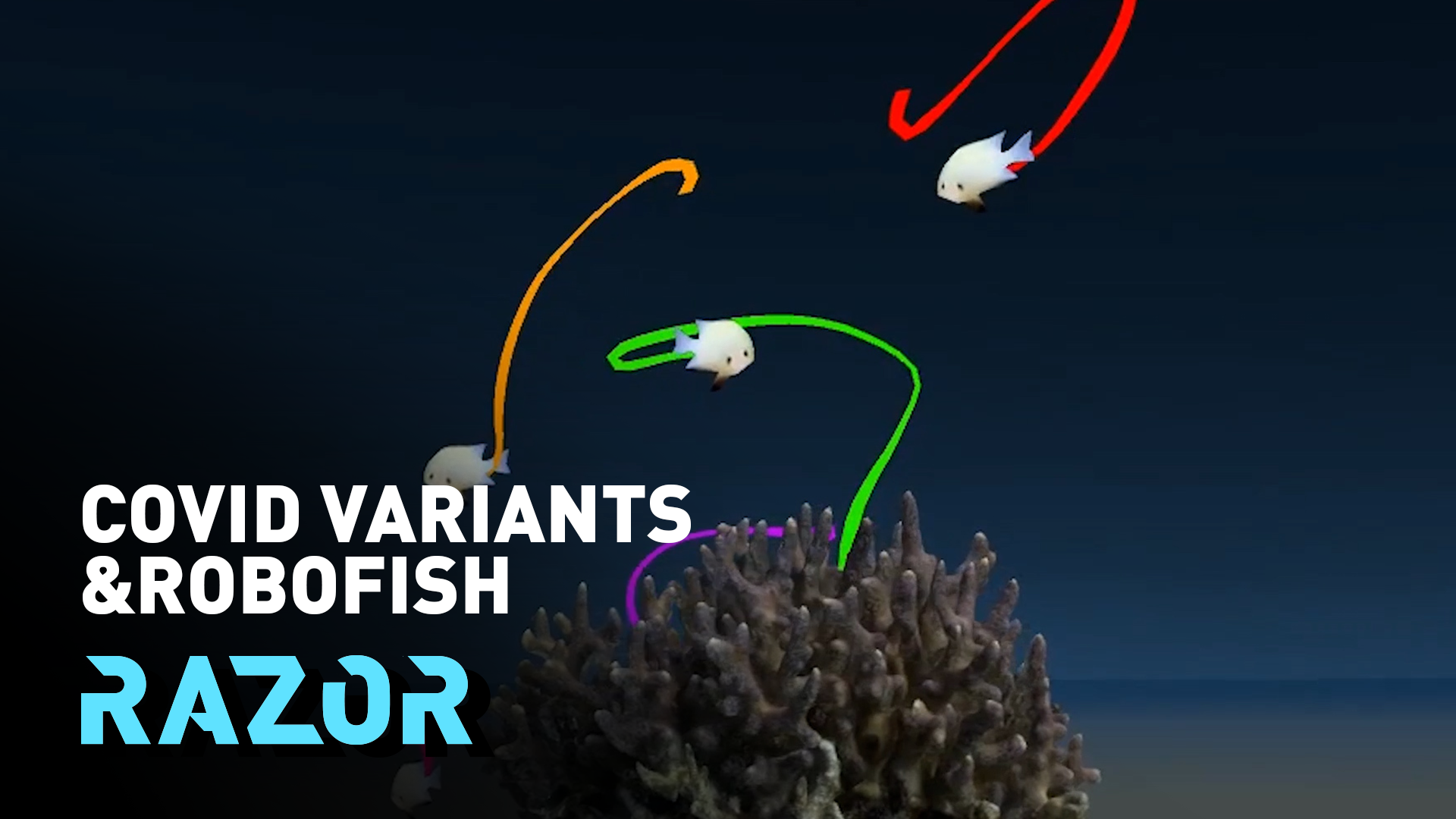30:00

This week's episode of RAZOR explores the new SARS-CoV-2 variants which are causing alarm, from South Africa and Brazil to the UK and Germany. Not only are they fast-spreading and heightening the waves of infection threatening already overwhelmed hospitals and medical services, but it's too early to know the extent to which existing vaccines will provide immunity to these variants.
RAZOR's Emma Keeling speaks to leading virologist Jeremy Rossman and clinical microbiologist Ravindra Gupta about the differences and transmissibility of each variant. Will 2021 see the evolution of more variants with multiple mutations and what can we do to avoid further lockdowns?
We know fish swim in schools to avoid predators, but new research from scientists in Germany, China and Hungary suggest that may not be the only reason for their group dynamic. Swimming in schools actually allows the fish to conserve energy and gain from the watery vortices that other fish generate as they swim.
This phenomenon is known as vortex phase matching and was one of the key discoveries made by Iain Couzin at the University of Konstanz. RAZOR's Shini Somara speaks to the professor about his work in creating fish-like robots, with motors and central pattern generators propelled by artificial intelligence to mimic the natural movements of real fish.
And lastly, scientists at the Liverpool School of Tropical Medicine are racing to produce a universal snakebite antivenom that could save tens of thousands of lives a year. To find a treatment that can work across the world, they have assembled a collection of the most deadly snakes in the world. RAZOR's Jo Colan joins them to see how their search is faring.

